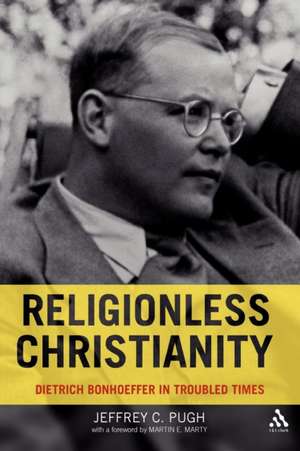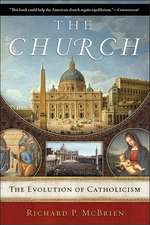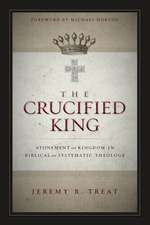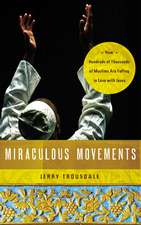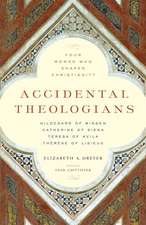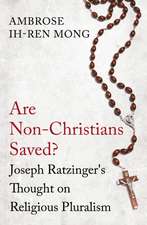Religionless Christianity: Dietrich Bonhoeffer in Troubled Times
Autor Dr. Jeffrey C. Pughen Limba Engleză Paperback – 31 dec 2008
This book is an interpretation of Bonhoeffer in the contemporary context. Jeffrey Pugh puts Bonhoeffer's theology in perspective by revisiting some of the themes of his life that have found abiding significance in Christian theology. Starting with a chapter on why Bonhoeffer is still important for us today, this book moves to chapters that bring Bonhoeffer into conversation with our present situation. In each of these chapters Pugh takes one of the central ideas of Bonhoeffer and gives them a fresh perspective.
Many of Bonhoeffer books today are written from an exegetical perspective, they try and get at exactly what Bonhoeffer meant. Others are written from a hermeneutical perspective, they try and interpret Bonhoeffer's abiding significance. This book seeks to combine both these approaches to offer interpretations of Bonhoeffer that are germane to our situation today.| Toate formatele și edițiile | Preț | Express |
|---|---|---|
| Paperback (1) | 216.99 lei 6-8 săpt. | |
| Bloomsbury Publishing – 31 dec 2008 | 216.99 lei 6-8 săpt. | |
| Hardback (1) | 830.62 lei 6-8 săpt. | |
| Bloomsbury Publishing – 31 dec 2008 | 830.62 lei 6-8 săpt. |
Preț: 216.99 lei
Preț vechi: 244.40 lei
-11% Nou
41.53€ • 43.26$ • 34.53£
Carte tipărită la comandă
Livrare economică 10-24 februarie 25
Specificații
ISBN-10: 0567032590
Pagini: 190
Dimensiuni: 156 x 234 x 14 mm
Greutate: 0.31 kg
Editura: Bloomsbury Publishing
Colecția T&T Clark
Locul publicării:London, United Kingdom
Caracteristici
Cuprins
Recenzii
With the publication of the Dietrich Bonhoeffer Works, Bonhoeffer scholarship has fully matured; we know the details of his life and thought, together with their genealogy and context. Across recent decades the scholarly analysis of modernity has also achieved a certain maturity. But it is Jeffrey Pugh, in Religionless Christianity, who lets us think with and from Bonhoeffer about compelling issues in our own context, shaped as it is by modernity and post-modernity. And he does it superbly well.
Who is Dietrich Bonhoeffer for us today? It is the Bonhoeffer, according to Pugh, that would have us look to Christ as the key to helping us discern the world in which we live. Drawing on his wealth of knowledge about Bonhoeffer, Pugh helps us understand how Bonhoeffer continues to help us accurately see the powers that we are so tempted to call "freedom." There are plenty of books on Bonhoeffer, but this is a book that not only helps us better understand Bonhoeffer; it also helps us better understand ourselves in light of Bonheoffer's work. Pugh is anything but uncritical in how he approaches Bonhoeffer, but his criticisms are but a tribute to this remarkable man and theologian.
We who still ponder the meaning of Bonhoeffer for our present life and calling are deeply indebted to Jeffrey Pugh for this remarkable book. Pugh's compelling analyses in Religionless Christianity enable us to encounter Bonhoeffer at that more personal level in which his vision for the future and challenges for the present becomes sources of inspiration and moral enrichment as we cope with the troubling issues and problematic moments of our own lives. At every turn in Pugh's book, we are led to appreciate Bonhoeffer's life among the fragments of his courageous resistance to moral degradation within his own nation.
Listed in Books received, Theology, June 2009
Pugh's question for the Church today, what is 'religion' and what is 'religionless' is one that clearly needs to be asked.
In addition to its helpful critique, Pugh's book benefits from an accurate and insightful analysis of Bonhoeffer's thinking.
Descriere
This book is an interpretation of Bonhoeffer in the contemporary context. Jeffrey Pugh puts Bonhoeffer's theology in perspective by revisiting some of the themes of his life that have found abiding significance in Christian theology. Starting with a chapter on why Bonhoeffer is still important for us today, this book moves to chapters that bring Bonhoeffer into conversation with our present situation. In each of these chapters Pugh takes one of the central ideas of Bonhoeffer and gives them a fresh perspective.
Many of Bonhoeffer books today are written from an exegetical perspective, they try and get at exactly what Bonhoeffer meant. Others are written from a hermeneutical perspective, they try and interpret Bonhoeffer's abiding significance. This book seeks to combine both these approaches to offer interpretations of Bonhoeffer that are germane to our situation today.
